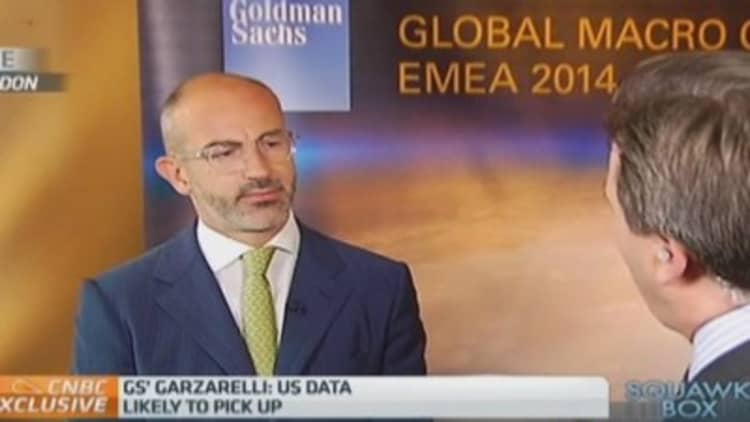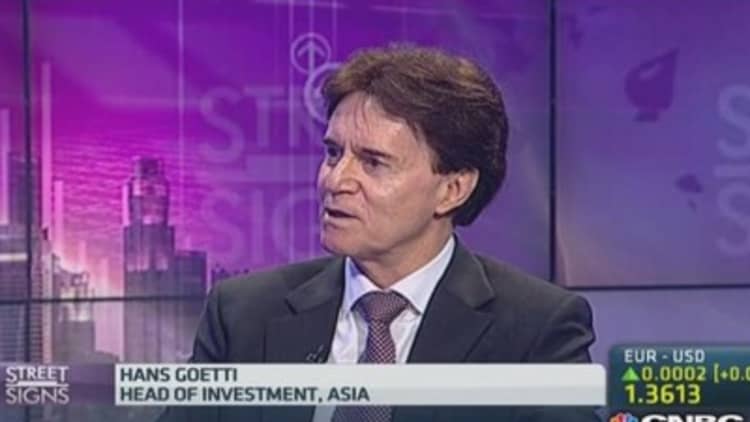Markets have frustrated widespread expectations for bond yields to rise this year, but some bond managers are still antsy and are looking to protect their portfolios' liquidity against sudden market moves.
"A sudden rise in U.S. short rates could easily entice fast outflows from higher yielding bond funds," Jan Loeys, head of global asset allocation at JPMorgan, said in a note last month.
Read More Will yields on high-yield bonds get even lower?
In the post-financial crisis era, tougher regulations mean banks can't step in to take advantage of fire sales and parts of the credit market could potentially freeze up in a worst-case scenario, he said.
The possibility is one that other credit managers considered.

"That risk is always there," said Harsh Agarwal, head of Asia credit research at Deutsche Bank. "With the heavy amount of supply we've seen so far this year, there might not be takers on the way down when things turn," Agarwal said. But he noted that analysts now expect interest rates won't rise until 2015, pushing the risks further out.
That hasn't stopped some fund managers from starting to prepare the decks.
Read More What taper tantrum? EM bonds return to peaks
JPMorgan is trimming the long exposure to bonds in its model portfolio in favor of more liquid assets, such as equities, Loeys said.
It isn't alone in worrying about the risks to bond market liquidity once interest rates begin rising.
"We definitely recognize the situation," said Jonathan Liang, senior portfolio manager for fixed income at AllianceBernstein. "We got a small taste of that last year between May and June with when people panicked."
Since then, AllianceBernstein has bolstered the liquidity management measures in its open-ended mutual funds, he said.
Read More Why tapering didn't push up bond yields
In May of last year, the U.S. Federal Reserve first broached its plan to taper its asset purchases, spurring global market convulsions, dubbed the "taper tantrum," as funds flowed out of emerging markets amid concerns liquidity would dry up and interest rates would rise.
The 10-year U.S. Treasury yield rose from 1.60 percent in mid-May to around 3.0 percent at the start of 2014, but despite expectations it would rise further, it has retraced to around 2.56 percent. Bond yields move inversely to prices.

After seeing redemptions from its mutual funds during the taper tantrum, AllianceBernstein increased the use of CDX index products, or credit default swap indexes, which essentially provide an insurance policy on groups of bonds, Liang said, noting that the products act almost like an exchange-traded fund and are more liquid than cash bonds.
Read More Why troubled euro zone bonds are outperforming Treasurys
AllianceBernstein is selling the contracts to collect the "insurance premium," and to gain a synthetic exposure to high-yield bonds.
"These contracts are a lot easier to put on and unwind. They cost a lot less to unwind than cash balance," he said.
To be sure, it's not clear how many bond managers are seeking out extra protection.
"I don't think we are seeing signs of increased demand for protection," Deutsche Bank's Agarwal said. "I don't sense any fear with clients when I speak to them."
He noted that the Market iTraxx Europe crossover index is trading around its tightest levels ever, which means the price has fallen amid a lack of demand.
Read More Which bonds should you buy now?
It's also not clear whether buying credit default swaps (CDS) is actually enhancing bond portfolios much.
"This strategy looks great on paper. It's a cheap hedge. You buy protection," Agarwal said. But with the rising interest rate story unlikely to play out until sometime next year, he doesn't expect the strategy will pay off in the next three to six months.
"If you're buying something, paying for protection, it obviously costs you money. So in that sense, you're losing money on your insurance scheme," he said.
—By CNBC.Com's Leslie Shaffer; Follow her on Twitter @LeslieShaffer1

